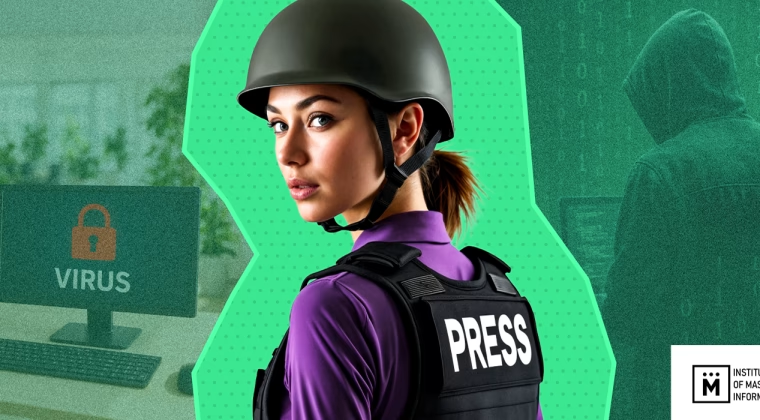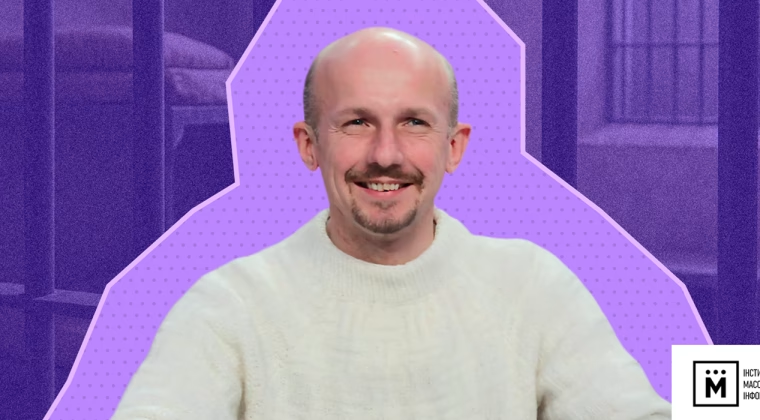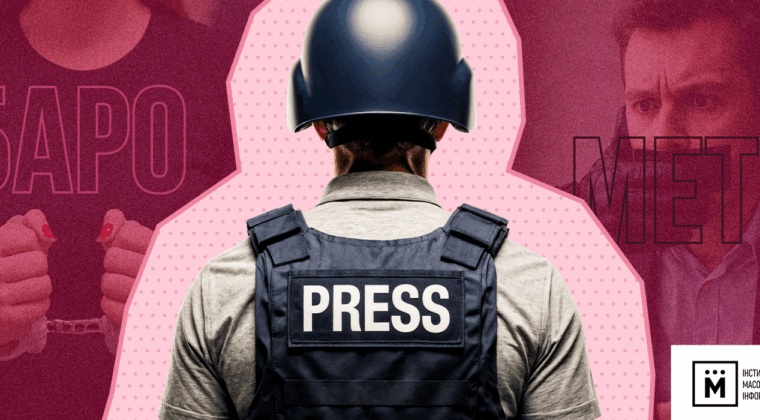In Russian schools, machine guns increasingly often appear side by side with textbooks. Even preschoolers are taught to handle weapons. Various organizations and movements aimed at involving children in military training and war have been and are being created. The Russians are trying to implement similar “educational” practices in the temporarily occupied territories of Ukraine as well. However, by doing so, the aggressors are ignoring the international law that provides for accountability for child militarization.
Starting in 2022, a network of “centers for military and patriotic education”, which, among other things, will provide fire training for children and teenagers, is being created in Russia. Furthermore, First Deputy Head of the Russian President’s Administration, Sergey Kirienko, announced the start of the new education program called “Knowledge”, which is supposed to train instructors for such “centers”. According to him, the program will include “athletic, military, patriotic, and ideological” elements. According to the Russian media, “martial arts experts” as well as participants in the attack on Ukraine and Russia’s other wars are invited to receive training and become instructors.
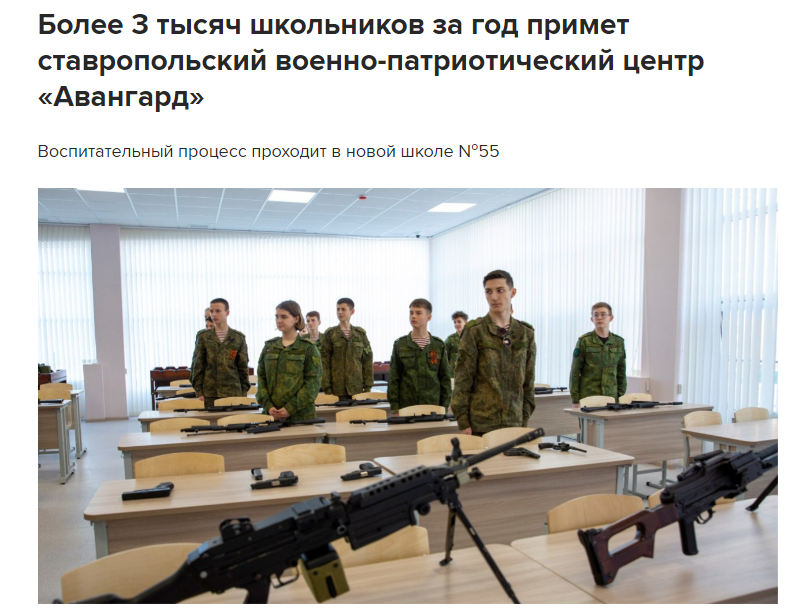
Headline: “The Stavropol Military and Patriotic Center ‘Avangard’ to accept over 3 thousand schoolchildren in a year”
The fact that the “interdisciplinary curriculum of military and patriotic education” is being developed by the so-called “Military Affairs Task Force”, created on Vladimir Putin’s order, is symptomatic. According to the website of the “United Russia” party, this “task force” includes representatives of the State Duma, the Council of Federations, the Russian Ministry of Defense, and so-called “war correspondents”. In addition to the issues of “military and patriotic education”, its tasks include preparing “proposals on the production of supplies necessary to meet the needs of all types of troops and military formations.”
In their material on the development of policy papers regarding the militarization of Russian children, the party’s website quotes Sergey Yevdokimov, head of one of such “centers for military and patriotic education”, who said: “The entire basic military training component needs to be ‘threshed’. Because assembling and disassembling weapons does not make you a better shooter and does not teach you how to get out of a battle with minimal losses.”
Unlike many other Russian initiatives, the new “centers for military and patriotic education” appear not only on paper. For instance, one such institution started working in the Stavropol Kray this February. The authorities there declare that they intend to “sift” 3,000 schoolchildren through it, teaching them “the basics of military service, general army regulations” and involving “military and tactical medicine training” as well.
A statement by the Youth Minister of the Belgorod region, Tatiana Kireeva, also shows Russia’s comprehensive approach to militarizing the new generation. According to her, the grant funding for the “militarist patriotic”” movement in the region has become 13 times bigger over 2022.
PMC “Wagner” also joined state structures and unnamed grantees in the plight to militarize Russian children and teenagers. Saint Petersburg saw the opening of the youth club “Leader”, which was immediately micknamed “Wagner Jr.”
The club does not in any way conceal its affiliation with PMC “Wagner”, whose owner Yevgeniy Prigozhin has stated that the institution’s mission is to “provide a comfortable environment for generating new ideas that help enhance Russia’s defense capabilities.” Currently, it has been reported that the club members are being taught to operate UAVs, explained the basics of working as a special service recruiter, and involved in supplying the Russian army. Currently, the identities of 60 “Wagner Jr.” mambers are known.
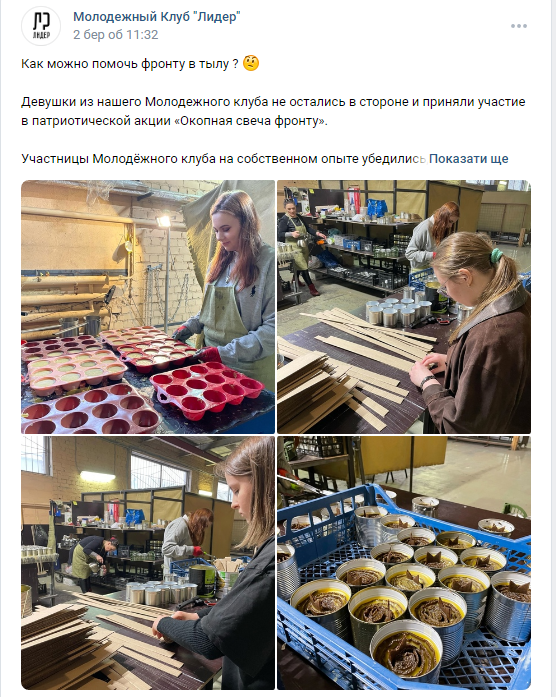
How can you help the soldiers on the frontline while being in the rear? Girls from our Youth Club could not stand aside and took part in a patriotic action called “A Trench Candle for the Frontline”.
The latest initiatives on the militarization of children and teenagers in Russia are developing simultaneously with the older ones. 2015 saw the creation the “Russian Schoolchildren Movement” (a nation-scale public/state organization for children and teenagers), sanctioned by Russian President Vladimir Putin. The movement has a military/patriotic focus and its activities include promoting the war and the development of militarized classes (for future cadets, “cossacks”, etc.) in schools. In the seven years of its existence, the movement has amassed about 4 million participants, 102 thousand parents and 275 thousand teachers throughout Russia. The organization accepts people ages 8 to 18.
Less visible, but no less effective, is the militarized branch of “Bolshaya Peremena” (means “long recess” or “big change” in Russian) – an autonomous non-profit, one of the organizers of the Russian national competition “Big Change”, which is held annualy with the support of the Russian Ministry of Education and Science and the Ministry of Science and Higher Education. The competition’s stated goal is to provide schoolchildren (5th grade and up) and young people up to 25 years with an opportunity to develop and realize their capabilities. However, one of the competition’s categories is called “Serving the Motherland”, and aims at presenting a distorted version of Russia’s history and promoting armed aggression against other countries to the younger generation. The community formed by participation in the annual competitions has 2.5 million members, involves 140 thousand teachers and 32 thousand educational institutions.
Still, the most famous militarized organization for children in Russia remains Yunarmia (a nationwide military/patriotic public movement for children and teenagers, initiated by the Russian Minister of Defense, Sergei Shoigu, in 2016). The organization’s main task is to get children involved in military training and promote the “Russian world” idology. For this, various classes and workshops where children learn to handle weapons, undergo combat and tactical training, participate in militarized sports games and relay races, are organized. The movement has already amassed over 1,240,000 children and teenagers across the country. At the time of its creation, Yunarmia accepted young people ages 8 to 18.
However, over the past five years, this paramilitary youth organization has started accepting children as young as kindergarteners. According to Russian media, this is practiced primarily in the Yamal-Nenets Autonomous District and the Primorsky Kray. Simultaneously, teenage members of the “Yunarmia” give “patriotic lessons” to preschool children, teaching the little ones to disassemble and assemble Kalashnikov assault rifles.
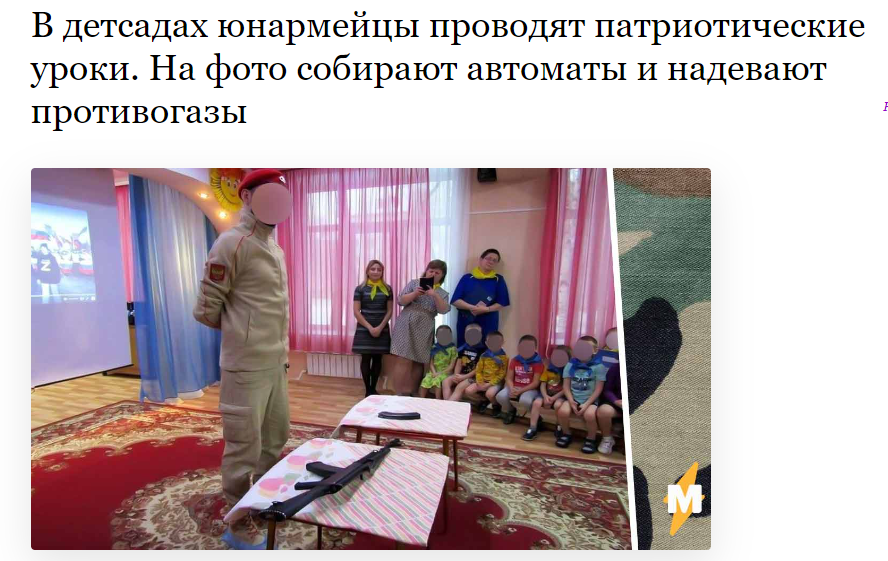
Headline: “Yunarmia members give patriotic lessons in kindergartens. The children in the photos are assembling rifles and putting on gas masks.”
In addition to the ones listed above, there are multiple militarized patriotic clubs, organizations, and movements that get children and young people involved in their activities with the purpose of “raising highly moral, socially successful citizens,” which effectively means raising compliant and loyal citizens, conditioned by propaganda to mindlessly go to battle on the dictator’s orders. The Russian authorities’ excessive efforts aimed at militarizing children and teenagers sometimes lead to simply grotesque results. For instance, at a swimming pool in Magnitogorsk, schoolchildren were made to race while wearing uniform and carrying machine guns.
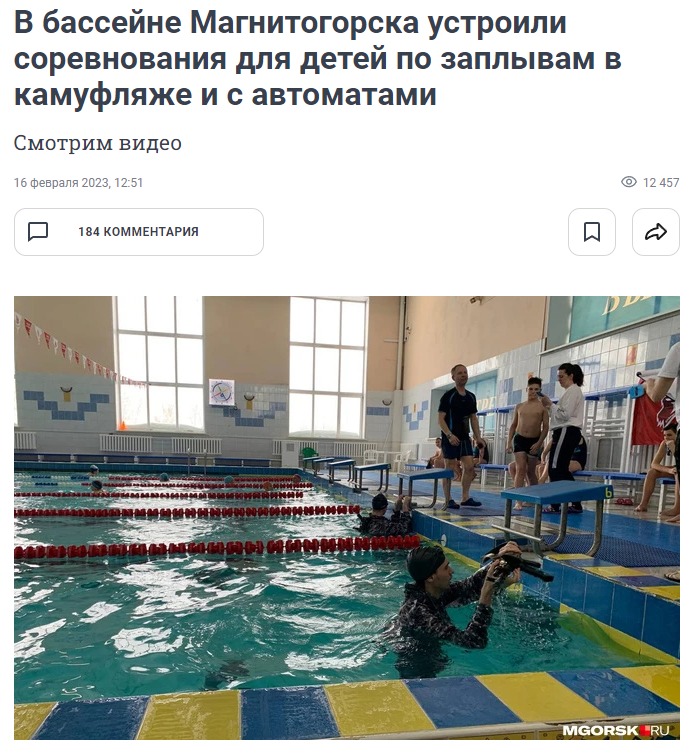
Headline: “Magnitogorsk swimming pool holds races with camouflage and machine guns for children.”
Oryol held a “Makeup for Your Camo” competition, where girls in uniforms would paint something ostensibly patriotic, but hardly aesthetic, on the faces of boys in uniform.
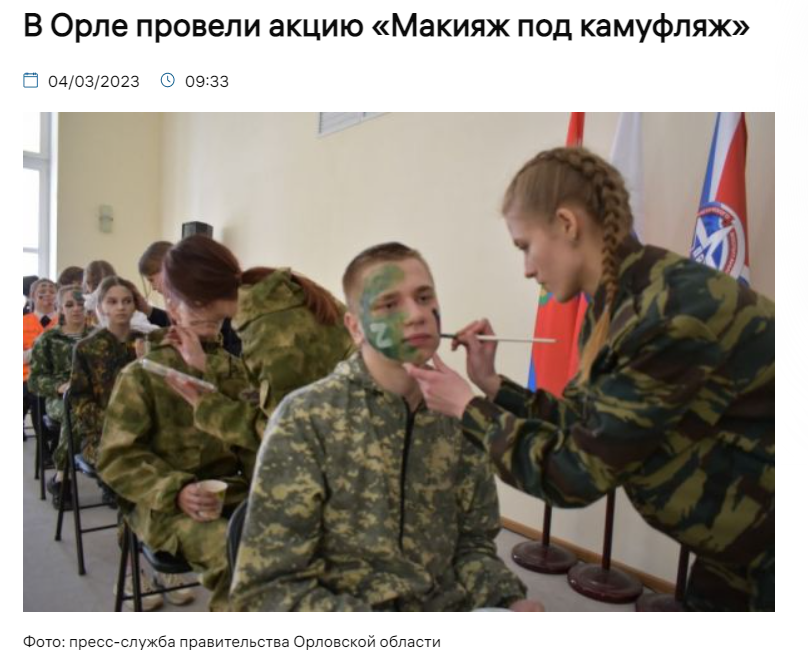
Headline: “Action ‘Makeup for Your Camo’ held in Oryol”
A school in Kazan (the capital of Tatarstan) was so eager to teach the pupils to cheer for the Motherland “by simply raising their hands up” to the song “I Am Russian” that they did not notice that they were teaching the children to make the Nazi salute.
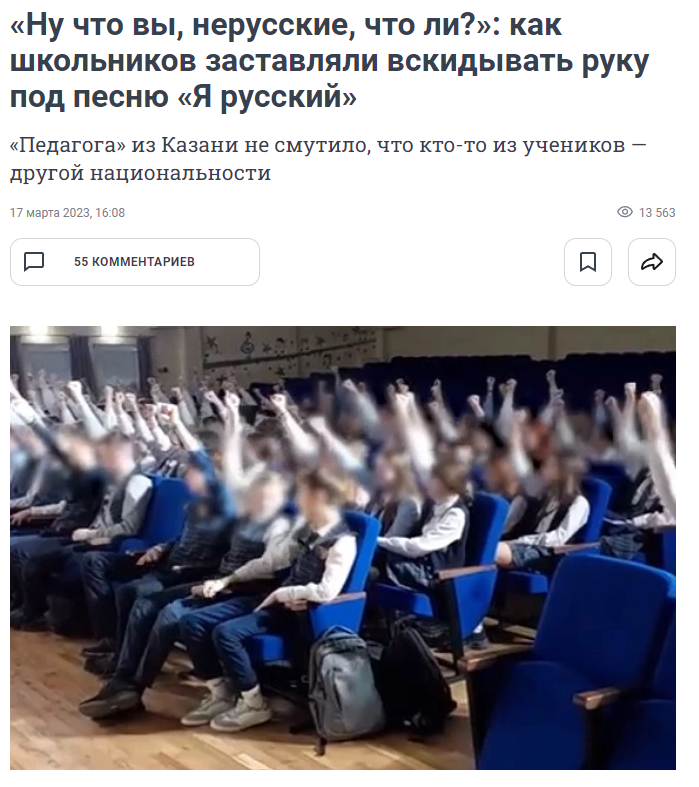
Headline: “‘What, are you not Russian?’ Kazan school teaching children to salute to the song ‘I Am Russian’. The teacher was not abashed by the fact that some pupils were of a different nationality.
Since 2014, Russia has been repeatedly violating international norms and committing crimes against children and in the field of child protection in Ukraine. In particular, in terms of school militarization and war propaganda targeting minors. There have been reports of children taken from Ukraine and distributed to orphanages being involved in war-themed performances and the making of trench candles for the Russian army, as well as being taught to handle weapons.
In the temporarily occupied parts of Ukraine, the militarization of children is conducted primarily through “military and patriotic” propaganda which serves, among other things, to prepare children for serving in the Russian army and encouraging them to enlist. This is done mainly by involving Ukrainian children in the activities of Russian militarist organizations and movements.
“Yunarmia” units have been created in almost every school in Crimea; it is known that their activities involve at least 10 thousand children, reports Qirim.News, citing the Crimean Human Rights Group coordinator, Olga Skrypnyk.
“All education in the occupied Crimea is currently structured in such a way that it is not so much about learning as it is about promoting military service, the war cult, twisting facts of history and misinforming the children. The school education as such involves two hundred thousand children who attend these establishments,” Skrypnyk stressed.
At the same time, the Crimean occupying authorities declare that 874 “Yunarmy” units (29,000 children) have been created in the peninsula.
Since the beginning of the 2022 full-scale war, the Russians have expanded this practice, recruiting Ukrainian children to the “Yunarmy” elsewhere as well. Vladyslav Nazarov, the Operational Command “South” spokesman, has reported on such attempts. There have also been reports of the Russians attempting to create branches of this militaristic organization for children in Kherson oblast, Melitopol and Mariupol.
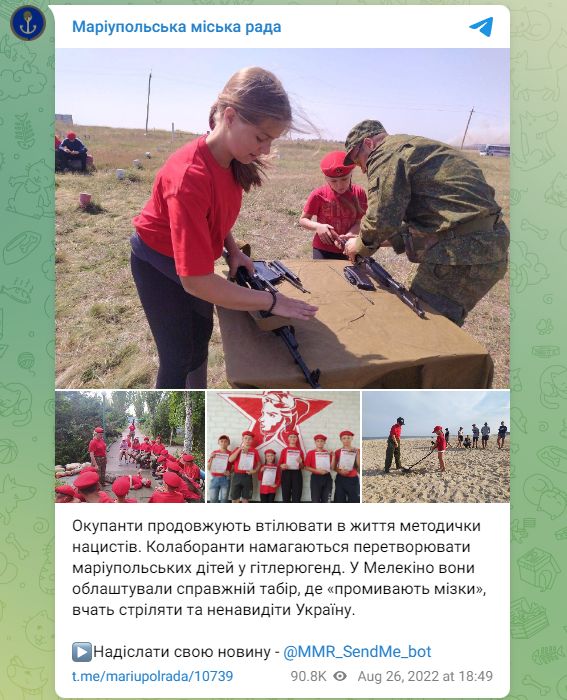
Moreover, at the end of last year, 200 teenagers were taken from the occupied territories of Donetsk and Luhansk oblasts to Chechnya for “military training and patriotic education” in the specialized camp “Gorny Kliuch” (“mountain spring”). This idea emereged during Russia’s Commissioner for Children’s Rights Maria Lvova-Belova’s meeting with Ramzan Kadyrov. The Telegram channel “Kadyrov_95” boasted about this, showing Ukrainian children holding weapons and saying that they had already managed to take the kidnapped teenagers on a tour of the military training ground and of the special forces university, as well as read them a lecture about the “Rosguard heroes.”
Meanwhile, Russia’s Deputy Chair of the President’s Administration, Sergey Kirienko, has said that a “presidential grant” of 480 million rubles should be allocated to the “military and patriotic” education of children in the temporarily occupied territories of Ukraine.
The Kremlin-appointed “governor” of Sevastopol, Mikhail Razvozhaev, insists that “participants of the special operation must be involved in patriotic training of young people in schools and higher educational institutions, as they have young people’s trust.”
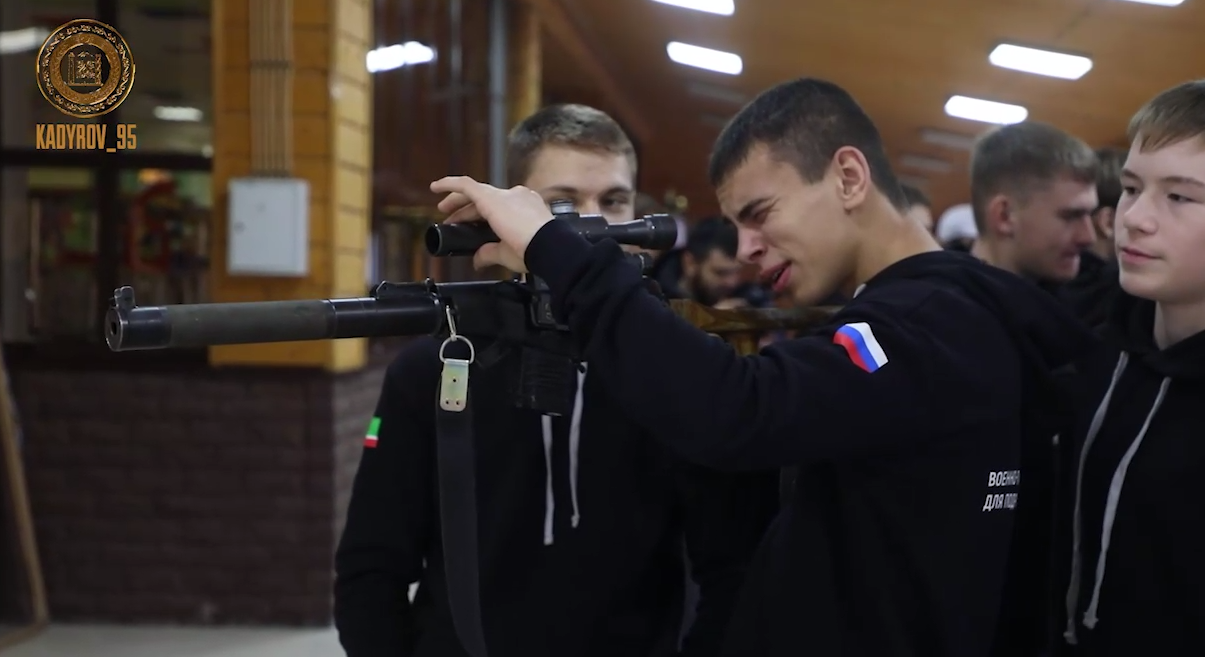
In this way, the Russians plan to build up resources to support further promotion of militarist rhetoric and mobilization. While Article 51 IV of the Geneva Convention on the Protection of the Civilian Population in Time of War prohibits the occupying power from exerting pressure and compelling the residents of the occupied territory to serve in its armed forces, as well as promoting voluntary enlistment into the army of the occupying power.
Furthermore, from the point of view of the international law, it is absolutely unacceptable that the militarist ideological treatment of children is carried out in schools, extra education institutions, orphanages, cultural and sports organizations, and that there is practically no minimum age for admitting children into such groups. After all, children are a unique and extremely vulnerable segment of the population. According to the Convention on the Rights of the Child, which was ratified by Resolution of the Verkhovna Rada No. 789-XII dated 27.02.91, “a child means every human being below the age of eighteen years.”
The Convention on the Rights of the Child, the Optional Protocol on the Participation of Children in Armed Conflict, and the African Charter on the Rights and Welfare of the Child prohibit the militarization of children and teenagers.
For instance, the recruitment of children and their participation in combat is an unacceptable practice which is prohibited by the 1977 Additional Protocols to the 1949 Geneva Convention. Even if children do not participate in the hostilities directly, it is obvious that their role in war may not be limited to this. Girls and boys can also be used for supporting the army, which is no less dangerous than participating in combat missions, and poses a great risk for children and leads to hardships in their later lives. Their tasks may be different, but they still face the horror of war beyond their comprehension. Regardless of their role, the children in any way involved in an armed conflict experience violence as witnesses, victims, or forced participants.
According to the Paris Principles and Guidelines on Children Associated with Armed Forces or Armed Groups, a child associated with an armed force or armed group refers to any person below 18 years of age who is or who has been recruited or used by an armed force or armed group in any capacity, including but not limited to children, boys and girls, used as fighters, cooks, porters, messengers, spies or for sexual purposes. It does not only refer to a child who is taking or has taken a direct part in hostilities.
Regardless of how they are recruited and what their roles are, child soldiers are victims whose participation in conflict has serious consequences for their physical and emotional well-being. They are usually victims of mistreatment and most of them witness death, murder and sexual violence. Many are forced to commit violence, and some suffer serious long-term psychological effects.
In 2000, the UN General Assembly adopted the Optional Protocol to the Convention on the Rights of the Child on the Involvement of Children in Armed Conflict to protect children from recruitment and their use in combat.
The Optional Protocol is the states’ obligation to:
- not recruit children below the age of 18 for sending them to the battlefield;
- not call up military personnel below the age of 18 for military service;
- take all possible action to prevent such recruitment, including laws that prohibit and
- criminalize the recruitment of children below the age of 18 and their involvement in combat;
- demobilize anyone below the age of 18 who was drafted or used in combat, and provide them with services aimed at their physical, psychological rehabilitation and social reintegration.
Thus, under no circumstances should armed groups recruit persons below the age of 18 or use them in combat.
18 years is the minimum age for recruitment and use of children in military operations. The recruitment and use of children below the age of 15 as soldiers is prohibited by international humanitarian law (treaties and customs) and has been defined by the International Criminal Court as a war crime.
However, the Kremlin is not particularly concerned about this. Currently, the Russian authorities are working on a draft bill proposing to handing children who have committed a crime over into the care of volunteer organizations or the “Russian Movement of Children and Youth” as a means of criminal law punishment. So, effectively, they are developing grounds for using not only adult criminals, but also underage offenders in combat.

